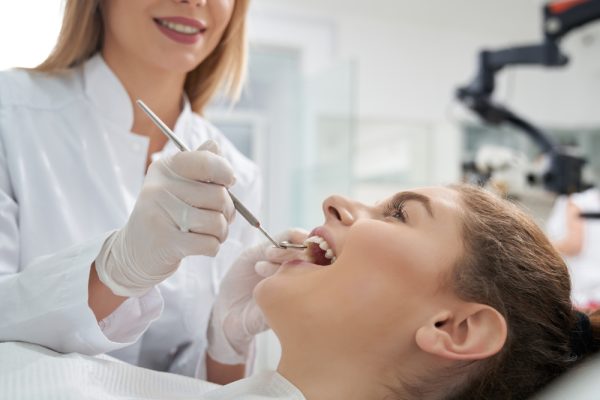What Is Oral Cancer?
Oral cancer is a serious condition that affects the tissues in the mouth or throat. It can develop in the tongue, lips, gums, roof of the mouth, or other areas of the mouth. While the causes of oral cancer aren’t yet fully understood, it’s known that certain factors can increase the risk of developing the disease, such as tobacco use, excessive alcohol consumption, and exposure to the human papillomavirus (HPV).
The Importance of Yearly Screenings
Yearly screenings are crucial for the early detection and treatment of oral cancer. Like other types of cancer, oral cancer can be more effectively treated when it’s caught early. Unfortunately, oral cancer is often not detected until it has reached an advanced stage, which can make it more difficult to treat and lower the chances of survival.
The American Cancer Society recommends that individuals receive oral cancer screenings as part of their routine dental checkups. This can help to detect any signs of oral cancer early on, increasing the chances of successful treatment.

How Dental Cleanings Can Aid in Detecting Oral Cancer Signs
Regular dental cleanings can play an important role in the detection of oral cancer. During a dental cleaning, your dentist will perform an oral cancer screening. They’ll examine the mouth for any signs of cancer, such as red or white patches, sores, or lumps. They may also ask about any symptoms or changes that the patient has noticed in their mouth, such as pain, difficulty swallowing, or changes in their voice.
In addition to a visual examination, your dentist may also use special dental tools to feel for abnormalities in the tissues of the mouth and throat. This can include using a tongue depressor to view the back of the mouth and a dental mirror to check the sides of the tongue.
If any abnormalities are found, your dentist may perform further testing, such as a biopsy or imaging tests, to determine if cancer is present.
Oral Cancer Treatments
Treatment options for oral cancer may vary depending on the stage of the disease and the individual’s overall health. The most common treatments include:
- Surgery: In some cases, surgery may be necessary to remove the cancerous tissues in the mouth or throat. This may involve removing part or all of the affected tissue, as well as nearby lymph nodes.
- Radiation Therapy: Radiation therapy uses high-energy radiation to kill cancer cells. It may be used alone or in combination with surgery or chemotherapy.
- Chemotherapy: Chemotherapy involves the use of drugs to kill cancer cells. It may be used alone or in combination with radiation therapy.
In addition to these treatment options, there are also several other therapies and supportive care measures that may be used to manage the symptoms of oral cancer and improve quality of life.

Frequently Asked Questions
While there’s no guaranteed way to prevent oral cancer, there are several steps you can take to reduce your risk. This includes avoiding tobacco and excessive alcohol consumption, maintaining good oral hygiene habits, and getting regular oral cancer screenings.
The American Cancer Society recommends that individuals receive an oral cancer screening as part of their routine dental checkup at least once a year. However, your dental professional may recommend more frequent screenings based on your risk factors and medical history.
Schedule Your Visit Today!
If you have concerns about oral cancer or have not received an oral cancer screening as part of your routine dental checkup, we encourage you to schedule an appointment with your local dentist today. Early detection and treatment are key to improving outcomes for individuals with oral cancer. Don’t wait, take action and schedule your screening today.
